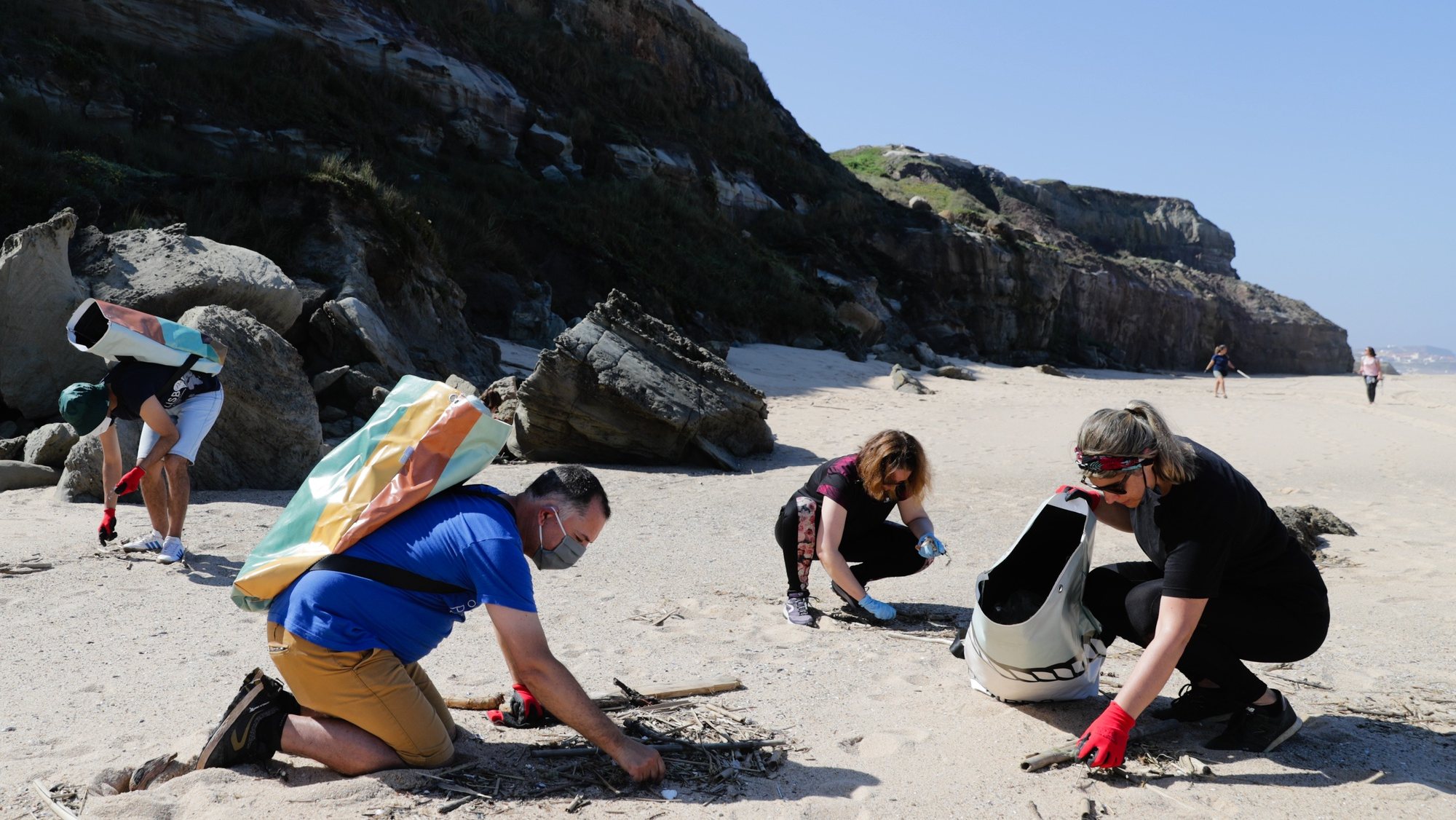Since Saturday, hundreds of organizations and thousands of people have participated in more than 150 cleanup actions on the Portuguese coast, when the International Coastal Cleanup Day is celebrated. As a starting point for today’s session, until the 25th, land and underwater cleaning actions will be carried out throughout the continent and islands, near the sea but also near rivers and other water points.
The clean-up actions, but also raising awareness about the problem of marine debris, are supported and promoted by the Blue Ocean Foundation, which involves more than one hundred and a half associations, in addition to more than 2,000 students from the Educar para Uma Geração Azul program. , developed by the Foundation, in addition to the representation of the European Commission in Portugal.
For today, 60 of the 150 cleaning actions already scheduled are planned, said Flávia Silva, from the Blue Ocean Foundation, responsible for the training program for non-governmental organizations (NGOs) and for the implementation of a national network of dedicated organizations, said Portuguese Agency. to the ocean, with special emphasis on the marine litter component.
The initiative in its current form started in 2019 and since then almost two hundred tons of garbage have been collected. Flávia Silva explains that since that date there have been more and more diversified adhesions.
If in the first year mainly organizations linked to the environment and the sea participated, now there are also cleaning actions to be carried out in schools, scouts, social solidarity organizations, and even companies, embassies and sports clubs, he said.
According to the person in charge, plastic represents 90% of the garbage that is collected, and in terms of articles, the saint is the champion. At the end of the summer, cigarette butts are the most common on the beaches, left by bathers during the bathing season, and the quantity is such that Flávia Silva believes that there should be a specific cleaning action. The official admits that the issue is not agreed upon but she says that she, personally, advocates a ban on smoking on the beaches. This is already the case, for example, in Barcelona, Spain.
“I think there has been a reduction in cigarette butts, and there is also a greater investment by the municipalities and support for the beaches, in raising awareness, but the truth is that people continue to think that it is fine. And the filters take five years to disappear, and the fish and birds eat those filters”, says Flávia Silva, recalling that “in reality” it is even forbidden to throw cigarette butts on the ground.
In addition to butts, cotton swabs are other very common materials, but also the packaging of products that are consumed on the beaches. The plastic wrappers of the straws (which are no longer plastic) “are by the hundreds.” “This waste is still a problem,” he laments. And from the bottom of the sea, she says, there are also glass and plastic bottles and, above all, material linked to fishing gear and nets.
Flávia Silva admits that adults are the ones who leave more garbage on the beaches, and that is why she considers it important that more and more people participate in cleaning actions, because, she says, whoever participates in this action will begin to see garbage in a different way. .
That is why it is also pleasing that there are more and more participants from different sectors of society. Last year, when the European Union joined for the first time, Portugal was held up as an example of good practice, because Portugal’s total actions were double that of the other countries involved in the campaign, he said. I am also pleased that there is a decrease in waste, even if the reduction is not as great as I would like.
Actions such as those initiated today contribute to a change in mentality, he affirms, adding that it is fundamental, because there is still a lot of garbage left on inaccessible beaches, because at the beginning of the year the amount of garbage left on the sands, from champagne bottles and glasses and plastic cups to plastic confetti. Flávia Silva does not want to highlight the cleanup actions, because they are all important, but he says that on the 24th, in Sesimbra, they will try to gather 600 divers in an underwater cleanup initiative that wants to break a record.
In Cascais there will be today an underwater cleaning action and others in the municipality and in the municipalities of Sintra and Mafra, in this case, on the beach of Foz do Lizandro, with representatives of the European Commission, the Blue Ocean Foundation and the municipality.
Since 2019, 192 tons of marine litter have already been collected in Portugal in approximately 1,250 coastal cleanup actions, in which almost 24,000 volunteers and 250 organizations participated. On average, 14 million tons of plastic enter the ocean each year. Every minute the equivalent of two truckloads of plastic enters the sea.
The Blue Ocean Foundation ensures that every year a million seabirds, 100,000 mammals and sea turtles, as well as countless fish, die from plastic in the ocean.
Source: Observadora
